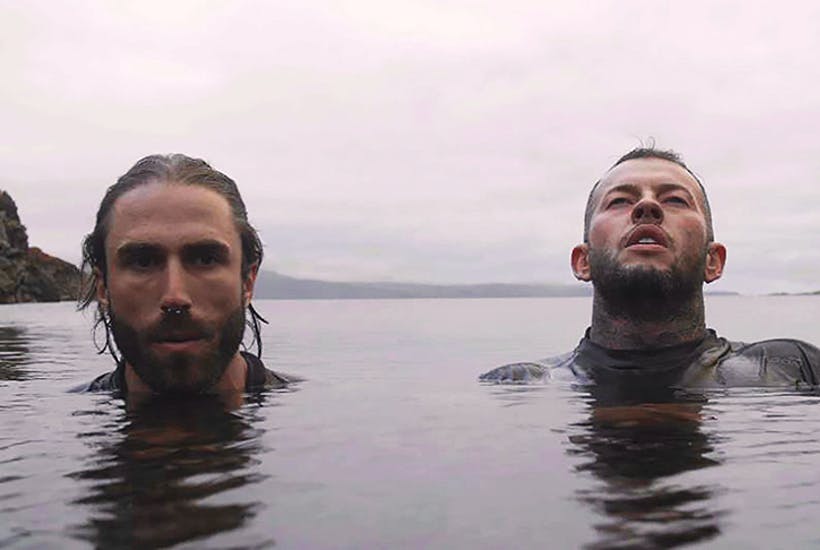SAS: Who Dares Wins (Channel 4, Sundays) is literally the only programme left on terrestrial TV that I can bear to watch any more. And I’m only slightly exaggerating. Where else, anywhere from the BBC to Channel 4, would you see a woman being punched in the face and made to cry by an ex-SAS soldier for your amusement and delectation? Where else would the competition not be rigged in one way or another so as to ensure that the appropriate race and gender mix made it through to the end?
Yes, of course it was shocking a few weeks back watching midwife Louise Gabbitas, 29, get thumped several times in the head by a bloke. Especially when we viewers knew that he was in fact undercover ex-special forces and had been sent to spy on her.
But this rigour and integrity is what makes this series so watchable and so worthwhile. The idea is that 25 ordinary (but superfit) members of the public are put through a simulacrum of the SAS recruitment process: repeated immersion in freezing sea; stomach-lurching crawls along ropes over yawning chasms; sleep deprivation; endless shouting and punishments for the smallest infractions. Clearly it wouldn’t be nearly so worthwhile making it through to the end if it wasn’t decided on merit.
Gabbitas herself certainly thinks so. As she told a paper: ‘From the start we were made aware that we would be treated as the equal of the men and that there would be no changes, allowances or exceptions for any of us.’
Currently we’re in the midst of the interrogation phase and it’s so brutal (four hours in a stress position with recordings of crying babies in your headphones) it makes The Krypton Factor look like Love Island. The remaining contestants, after just four hours’ sleep in two days, have completed a ten-hour hike across a Scottish island only to be captured, hooded, handcuffed and horribly abused using special techniques —so we’re told — which are actually forbidden in normal British Army training.
It’s so gruelling that one of the contestants, an Iranian immigrant called Shakiba, had to be involuntarily withdrawn after the anonymous chief torturer — a bearded figure known only as the Umpire — ruled that the psychological damage might tip her over the edge. We had learned, beforehand, that her own father had served in the Iranian army — presumably in the war with Iraq — and been traumatised by torture and watching his comrades all killed. Shakiba had soldiered heroically through to this late stage of the competition in honour of her dad. But she kept getting random panic attacks and wasn’t allowed to continue.
A harsh decision — but the right one. Many of the characters turn out, under interrogation, to have the most extraordinary, moving, inspiring back stories. The oldest contestant Carla, 40, rowed for Britain in the 2008 Olympics, has four children, a high-powered career — and decided to join the show as a way of recuperating psychologically from the chemotherapy she had had for breast cancer. But the series isn’t called She Melted My Heart So Let’s Nod Her Through! It’s about whether you have what it takes or you don’t. And also, to a degree, about how lucky you are. One of the surefire male contenders had to be withdrawn — again with extreme reluctance — because he had severely damaged his cornea by stumbling into a twig.
To appreciate properly just how transgressively countercultural the show now is you need only look at the adverts in between. Depressingly typical was the one for Starbucks, which celebrated the incredible transformational journey of a gamine, crop-haired girl called Jemima and her amazing achievement in realising her true identity by daring to order a coffee under the name of James and proudly seeing it written on the paper cup!
What I haven’t seen, though, is any adverts for the British Army. Perhaps it’s worried that by hinting that soldiering is about hardship, endurance, physical and mental strength, and combat, SAS: Who Dares Wins is sending out simply the wrong message about the army of today. Which, as a taxpayer and someone quite keen on the idea of Defence of the Realm, I find troubling. Call me old-fashioned, but I’d still much rather the army recruited rough lads on a hunt for adventure and the chance to kill their country’s enemies.







Comments